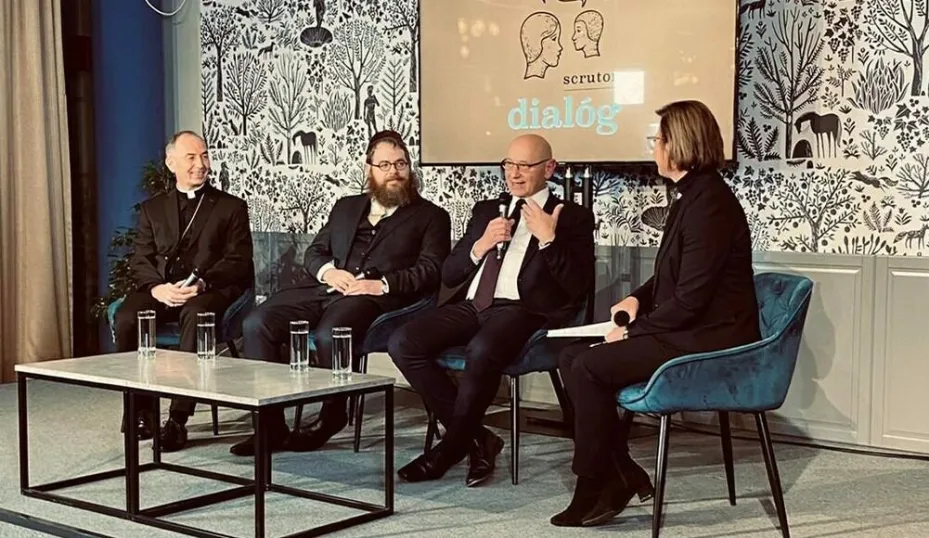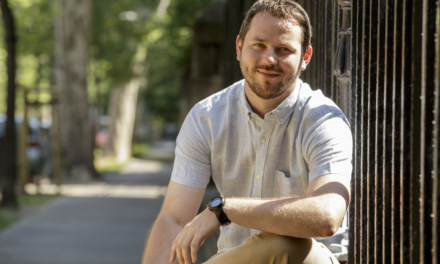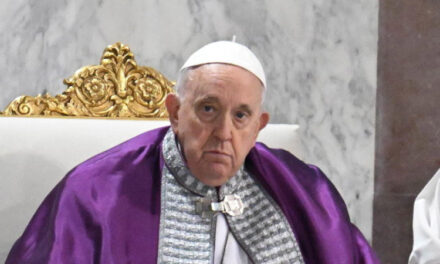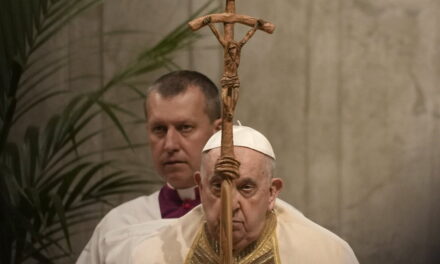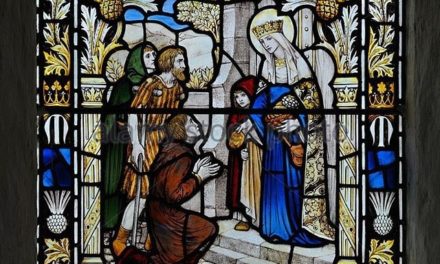Today, the essential relationship with God disappears, and man thus becomes lonely.
"Changing world, changing church?" – this was the title of the round table discussion organized by Scruton in the Mathias Corvinus Collegium building in Újbuda. The topic of whether or not the church(s) should, is free or even mandatory to respond - and if so in what way - to the changing world, was discussed by three religious leaders, the Roman Catholic Archbishop of Veszprém György Udvardy, the Reformed Bishop Dániel Pásztor and Slomó Köves, the leading rabbi of the EMIH, were dissected. The discussion was led by Tünde Wolf-Nagy.
At the round table discussion, a number of disruptive, but certainly important topics all revolved around the church's response to the changing world. The three religious leaders already gave different opinions on the pressing question. According to Dániel Pásztor, the church is not an organization in the classical sense, which must adapt to the community, but a "community of saints", which inherently "does not belong to people, but to God", and thus it does not have to, and indeed should not, adapt to the current spirit of the age.
György Udvardy saw the issue somewhat differently, according to him that there are situations and issues in which the church must indeed change in relation to the given age and zeitgeist, but being a reference point, it must represent permanence in certain issues.
Slomó Köves highlighted the fact that there has been no centralized church in the Jewish religion since ancient times, so it is not an institution, but a set of rules and rituals.
As such, its essence is the change itself, since the "role of the church" is therefore to point out what is the part of the divine revelation that is unchangeable and what must change with time.
The round table discussion also discussed the communication strategy of the churches, and the three religious leaders were of the same opinion on the question of how to address the young generation. György Udvardy believed that addressing young people has always been an important issue for the church. According to the archbishop, it is important that we "dare to ask questions and dare to listen to the answers". Dániel Pásztor drew attention to the fact that
"the message of the client (i.e. God)" must be delivered, but at the same time, he considered it important to emphasize that digital tools should not replace personal communication: "the personal word, the personal meeting still has and will have power."
Rabbi Slomó Köves answered the moderator's question as to what motivates his organization's often unusual and very creative forms of communication:
"adaptation is deeply rooted in Jewish philosophy"
and he recalled the story of Rabbi Yochanán ben Zakaj, who lived in the first century of the civil era, at the time of the destruction of the Second Temple in Jerusalem, who, according to the testimony of the Talmud, when he had the opportunity, did not ask the Roman governor for anything that he knew he could not get. Rather, he "asked for Jávné", i.e. he also focused on spiritual survival, realizing that not only the physical location is important, but also a virtual spiritual center should be created.
Discussing the role of social media, Rabbi Köves argued that the question for religious leaders is not only whether they react, but also whether they are asking the right questions. "For centuries," argued the head rabbi of the EMIH,
"authority was in the hands of the clergy, today not only the person of authority is questioned, but also the concept of authority. Today's people also turn to false prophets, Greta Thurnberg or Kim Kardashian. The task of religious leaders is not to be afraid to go out of safe spaces and help people ask important questions, or even provoke the question."
György Udvardy was the first to express his opinion on whether churches are allowed to engage in politics and drew attention to the fact that it is the duty of churches to "use everything for the glory of God. The church must and can only have a say from the side of teaching, since this is where divine objectivity and mission also appear," argued the archbishop, adding that the churches
"so they can guarantee that they can preserve dignity, freedom and justice."
In relation to politics, Pásztor Dániel drew attention to the fact that "it is used as an accusation when a church speaks out on the subject, and why. The church does not directly politicize, but at the same time all its members are homo politicus at the same time," argued the bishop, who said that "the church fulfills a divine mission, but silence also has power. On issues such as homosexuality, the church cannot be silent and must express its opinion."
At the end of the evening, important questions came from the audience, for example, what do religious leaders think about the fact that some people oppose science to religion, do they plan to rewrite the Bible according to today's times, what is their opinion about the about homosexuality, and where can God enter the life of today's people, what can he answer that others - for example professionals - cannot?
Pastor Dániel Pásztor said that, of course, they do not plan to rewrite the Bible, and that his church does not feel that science and religion are opposed". According to the Reformed bishop
"real scientists don't question God".
Regarding homosexuality, he said that it goes against the plan of divine creation, "at the same time, we want to heal man as a man, but we cannot accept him and identify with him." According to Pásztor, one should first turn to God and only then to a doctor or psychologist. "A doctor or psychologist is a kind of tool in healing, which ultimately comes from God."
According to Rabbi Köves, "it is a naïve approach to turn to God when there is no medicine, because even if there is medicine, there is no eternal life and there is suffering even now". According to the leading rabbi, moreover, there is suffering not only from lack, but also from abundance", and the job of religion "is not to alleviate suffering, but to show that we are finally in this world".
"Religion," said Rabbi Köves, "is not opposed to science, but to scientism." Science "answers the hows, religion the whys"
- said the leading rabbi of the EMIH, who said that "in addition to homosexuality, the Bible forbids many other sexual relations, such as adultery, and the common thing is that both are human temptations." "
"Sexuality is not such a central topic by chance: it is an elementary part of human existence, it affects the deepest layers of our soul, so it is worth thinking about what makes sexuality full of dignity, but at the same time one should not despise the other person"
Slomó Köves said.
According to Archbishop György Udvardy, "man can understand himself only in religion, only in God, this gives his own existence the intimate relationship we desire".
According to the Catholic leader, the problem is that "nowadays the essential relationship with God disappears, and man thus becomes lonely."

